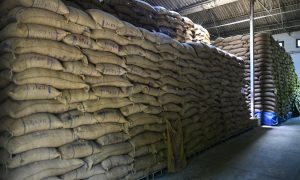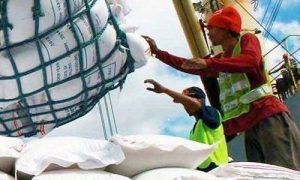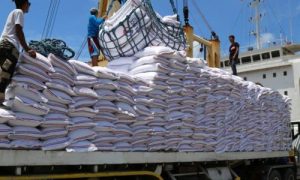Brazilian farmer lobby calls on top court to stop government rice import plan

Brazil’s leading farming lobby, CNA, challenges government’s plan to import 1 million mt of rice, filing a legal case arguing domestic supply suffices post-flood. The planned tender for 300,000 mt faces scrutiny, accused of inviting “predatory competition.” Minister defends move as price control measure amid speculation. Despite lukewarm response from exporters, millers resort to imports. Critics suspect political motives, foreseeing potential crop diversification. Uruguay emerges as potential supplier amid global supply constraints.
Brazil’s leading farming lobby, the CNA, has petitioned the country’s Supreme Federal Tribunal to strike down the government’s plan to import up to 1 million mt of rice.
The Brazilian government plans to tender for 300,000 mt of milled rice on June 6 to cool prices on the domestic market, after floods overwhelmed the country’s main rice-growing state from early May.
The rice industry says the imports will deter future planting and are unnecessary, with ample domestic supply. The legal case filed on June 3 by the CNA, the Brazilian Agriculture and Livestock Confederation, seeks the cancellation of the tender, arguing it violates the constitution.
“The CNA underlines in this (legal) action that 84% of the state’s planted area was actually harvested before the rains began and highlights that there is no risk of undersupply,” the CNA said in a statement on its website.
The entity says the government’s failure to consult the sector has resulted in a flawed import plan which will allow “predatory competition from foreign rice,” potentially produced according to comparatively lax phytosanitary norms.
The Brazilian Agriculture Ministry could not immediately be reached for comment but Agriculture Minister Carlos Favaro told CNN Brasil last week that the plan, which foresees retailing the rice at a regulated, subsidised price, is about protecting consumers.
“The government is doing this to control exaggerations in price and financial speculation…If someone is speculating and the government is offering at a fair price, the market will return to a fair price. I’m not trying to affront anyone…It’s not 300,000 mt that will be an intervention in the market but it will stabilize it.”
Bureaucratic hurdles
The response from potential exporters to Brazil has been lukewarm, with industry sources in the US and South America highlighting the plan’s red tape and logistical complexities, despite a waiver on import taxes for rice until the end of the year. Sources pointed to the requirement to ship in 5-kg bags as particularly off-putting.
Millers told S&P Global Commodity Insights during the worst of the flooding that farmers had hiked price demands for paddy or rough rice amid uncertainty over how much of the crop could have been lost.
The millers were the first to turn to imports to cool the market, buying 120,000 mt of Thai white rice in May via commodities traders ADM, Viterra and Olam, after struggling to procure from local farmers.
While no figures exist, exporters and now the CNA say flood damage to the crop is unlikely to be significant, since only a small portion remained unharvested, some of which dodged the floods. Some damage to rice stored in silos was reported but the extent is unclear.
Critics have pointed out that the measure, called for by President Luiz Inacio Lula da Silva, has a political motive, coming in the run-up to local elections and that it could generate rather than cure supply issues if farmers opt to plant other crops next season.
Rice industry sources in the Americas have pointed to Uruguay as the origin most able to fulfil the tender’s requirements with the United States now almost sold out of supply and the remainder of Argentina’s relatively-small crop this year reserved by exporters for their regular customers. One Uruguayan source said they were unlikely to be interested while another said they were looking at the idea and that it would be feasible for them to reach the stipulated delivery points by truck.















